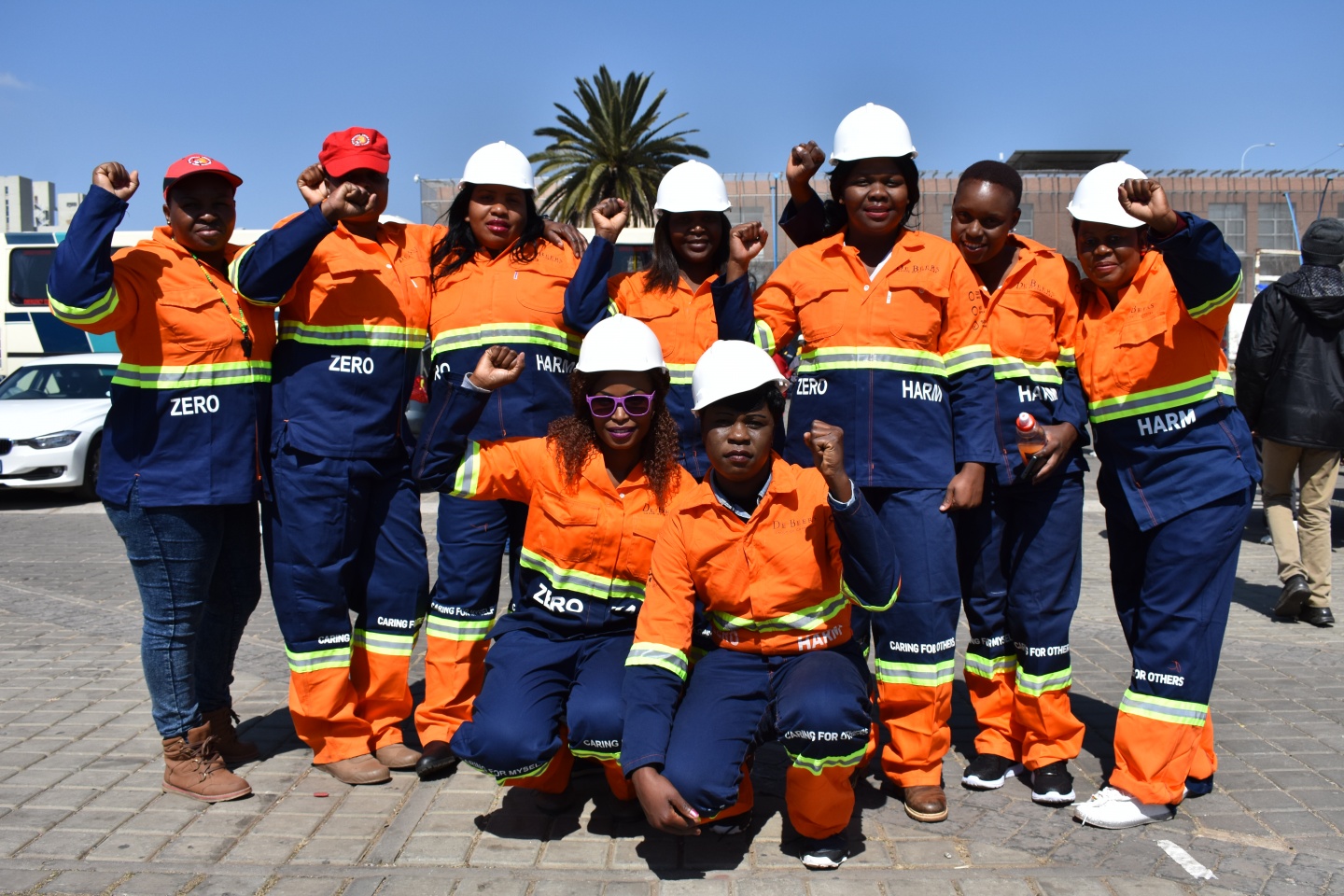6 August, 2022The National Union of Mineworkers (NUM) national health and safety committee met on 4 August in Johannesburg to discuss the impact of the union’s health and safety campaigns and training programmes in the mining, energy, construction, and metals’ industries.
The campaigns and strategies are aimed at accident prevention in the mining industries and other workplaces that the union organizes. One of the strategies discussed at the meeting is to demand an effective labour inspectorate in the national department of mineral resources and energy. The NUM says the labour inspectors are not consulting with the union therefore making unilateral decisions on Section 54 notices of the Mine Health and Safety Act which stop operations at mines for health and safety reasons. In some cases, inspections are not done, accident reports are not issued as prescribed in the law, and the inspectors have not been seen in some mines for long periods of time.
The NUM strategies empower and strengthen the capacity of occupational health and safety and trade union committees at workplaces to play essential roles in reporting accidents and emphasising on the right to stop dangerous work. Further, the union wants the government, and mining companies to provide more labour inspection services.
The provision of suitable personal protective equipment for women miners continues to be an outstanding issue. Additionally, the union says heat stress management is being used as an excuse to retrench some women miners and want this unfair labour practice to be stopped.
Masibulele Naki, the NUM national secretary for health and safety said:
“Despite the challenges, we are joyful in that the fatalities related to the fall of ground are getting less. This makes us confident that achieving zero harm and zero fatalities is possible. We continue with our campaigns and training on health and safety and so far, we have trained 500 workers, in addition to the regular training that we provide to the health and safety shop stewards.”
Falls of ground – rockfalls, rock bursts and strain bursts – have caused most of the death of mineworkers in South Africa. According to the Minerals Council of South Africa there have been no fall of ground accidents in the first seven months of this year.
Speaking at the meeting, Glen Mpufane, IndustriALL director for mining and occupational health and safety lead said:
“The NUM must not lose sight of the gains it has made in making South African mines safer for mineworkers. The union’s success stories are a global model for the mining industry. Importantly, the union must continue to protect the lives of workers through health and safety campaigns that help to prevent fatal accidents and emphasize on health and safety as a fundamental right at work. Mining companies must always be reminded to adhere to mine safety standards and ILO conventions.”
He cited Convention 155 (Occupational Health and Safety Convention), Convention 176 (Safety and Health in Mines), and related recommendations.
The IndustriALL regional office for Sub Saharan Africa has set up a platform to address the health and safety deficits on the continent. With most African economies relying on the lucrative export of minerals, there are more occupational health and safety challenges in the mining sector where fatal accidents are common and largely unchecked with some mining companies not having accident prevention policies. Although health and safety laws exist, implementation and enforcement remain a challenge. In some countries failure to enforce the legislative framework is often attributed to lack of financial resources to employ enough labour inspectors.




